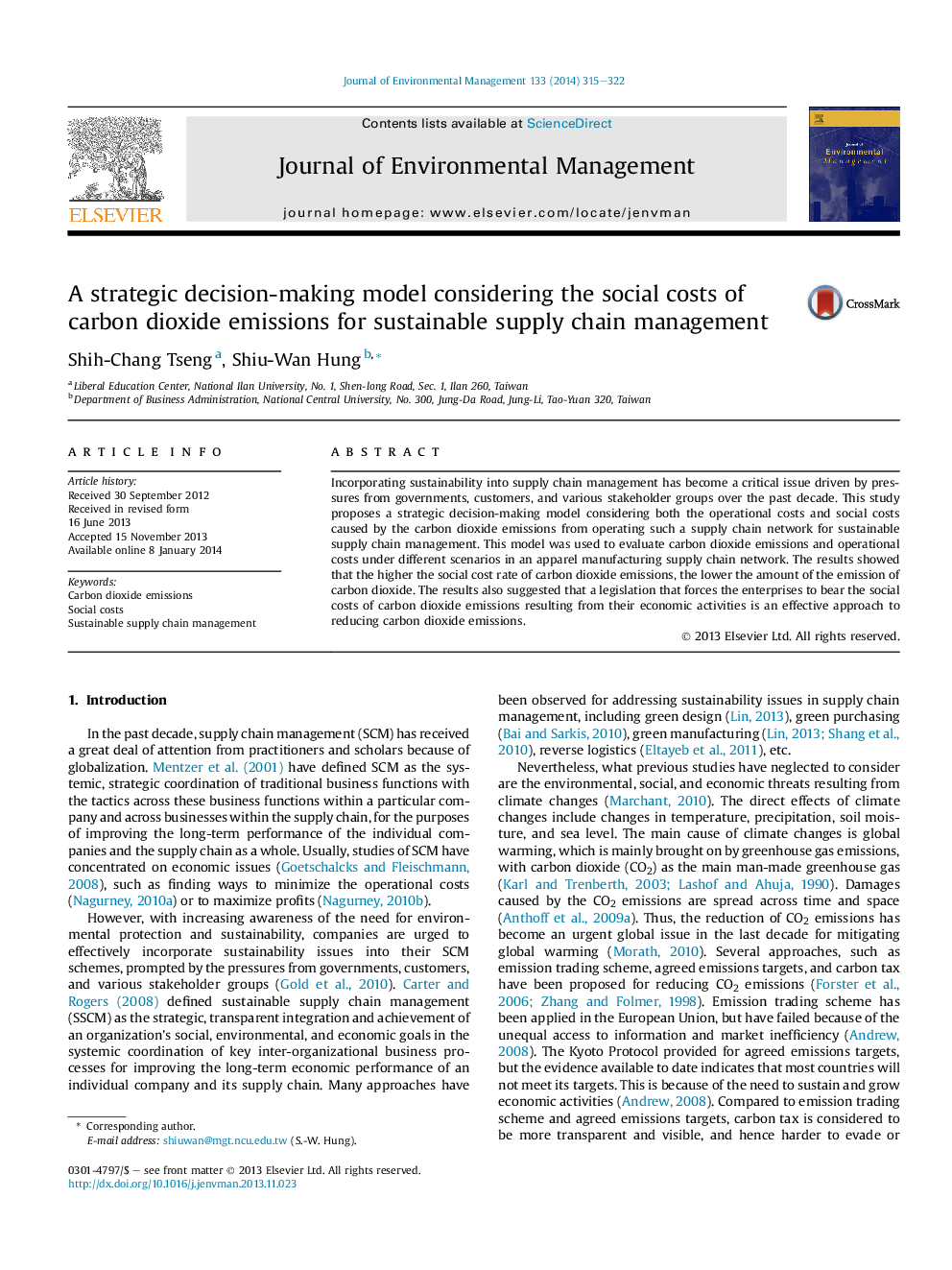| Article ID | Journal | Published Year | Pages | File Type |
|---|---|---|---|---|
| 1055851 | Journal of Environmental Management | 2014 | 8 Pages |
•A decision-making model for sustainable supply chain management is developed.•The authors consider both operations costs and social costs of CO2 emissions in this model.•This model was applied in a textile enterprise.•The higher the social cost rate of CO2 emissions, the lower the amount of the CO2 emissions.•Bearing the social costs of CO2 emissions will force the enterprises to reduce the CO2 emissions.
Incorporating sustainability into supply chain management has become a critical issue driven by pressures from governments, customers, and various stakeholder groups over the past decade. This study proposes a strategic decision-making model considering both the operational costs and social costs caused by the carbon dioxide emissions from operating such a supply chain network for sustainable supply chain management. This model was used to evaluate carbon dioxide emissions and operational costs under different scenarios in an apparel manufacturing supply chain network. The results showed that the higher the social cost rate of carbon dioxide emissions, the lower the amount of the emission of carbon dioxide. The results also suggested that a legislation that forces the enterprises to bear the social costs of carbon dioxide emissions resulting from their economic activities is an effective approach to reducing carbon dioxide emissions.
